


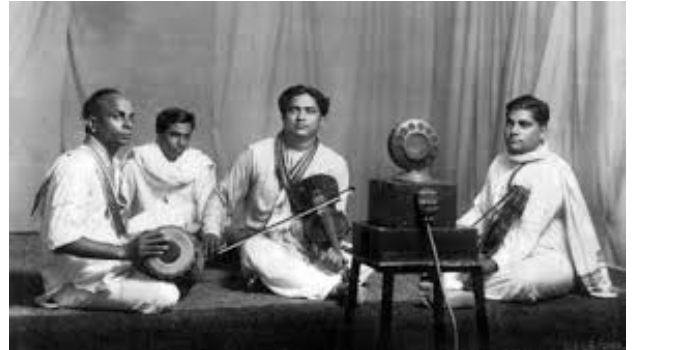
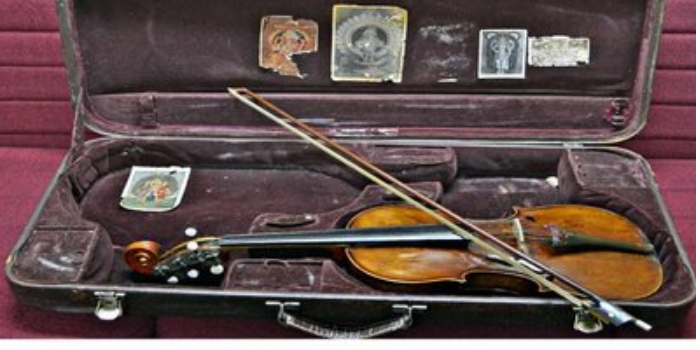
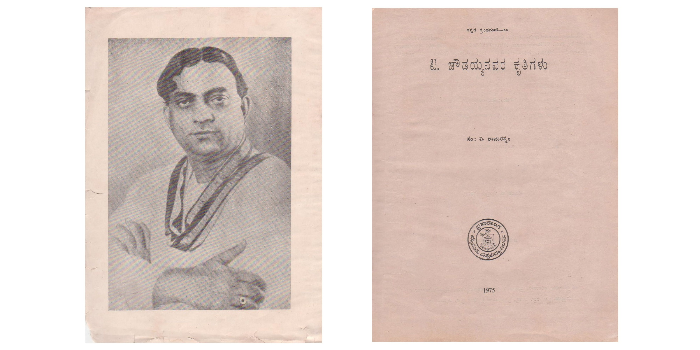
While Chowdiah gained renown as a performer, a teacher and a popular music personality, that he was a composer is relatively less-known. Chowdiah composed nearly 50 compositions, mainly krithis and thillanas, under the ankitha nama (pen name) of Trimakuta. The compositions are in Kannada, Telugu and Sanskrit languages and in well-known ragas. Many books and publications of his compositions have been brought out. Of these, a volume of Chowdiah compositions notated by Prof. V Ramaratnam (his disciple and vice-principal of Ayyanar Music College) has been used as the reference material for this project. Read more about Chowdiah’s compositions here
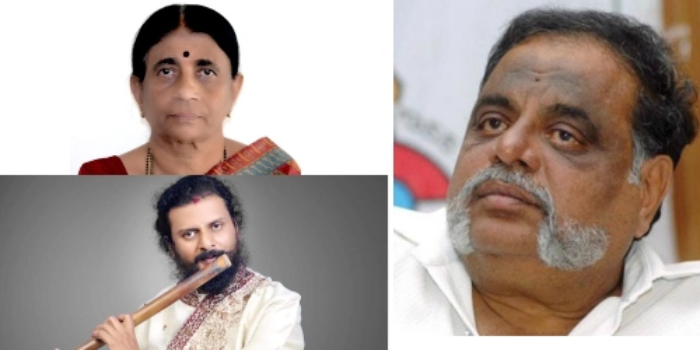
Chowdiah had 3 daughters, and 14 grandchildren. Chowdiah’s great-grandson Mysore A Chandan Kumar is a prominent flautist. Mrs. Sheela Boraiah, granddaughter, is a retired physics professor and was instrumental in bringing out a CD of Chowdiah’s recordings. His grandson, Ambareesh, was a legendary actor of Kannada cinema, as well as a Member of Parliament and a Minister of the Government of India. Another great-grandson, Dr. Shekar is a diabetologist in Mysore. Another of his family members, Dr. T. C. Poornima, is a senior official of the Indian Information Service, and has written a book on the life and music of Chowdiah.
Chowdiah taught numerous disciples, both vocalists and violinists, through his lifetime. Some of his prominent disciples are:
V. Seturamiah, R.K. Venkataramana Shastri, Palghat C.R. Mani, Kandadevi Alagiri Swamy, N. Nanjundaswamy, Ramanujam, Madhurai Venugopal, Chinnappa, K.J. Venkatachar, , Dr. Padma Murthy, K.S. Sundaram Iyer, M.L. Cheluvaraj, Madappa, H.R. Seetarama Shastri, V. Ramaratnam and Anasuya Kulkarni.
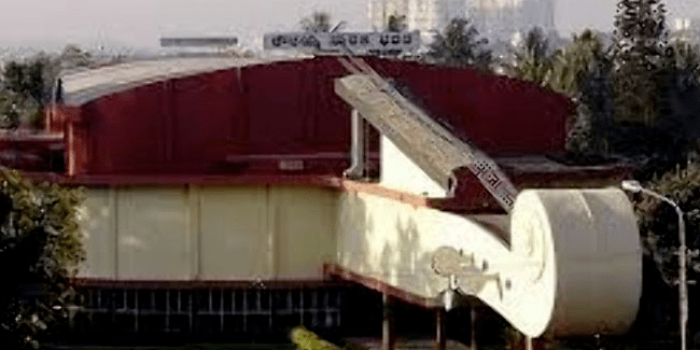
The most visible legacy of Chowdiah is the Chowdiah Memorial Hall, built in his memory, located in Malleswaram, Bengaluru. Built in 1980 with support from the Karnataka Government, it is unique because it is built in the shape of a seven –stringed violin, perhaps the only building of its kind in the memory of a musician.
The Academy of Music is a Trust that administers the Chowdiah Memorial Hall and undertakes activities for the preservation and propagation of music. Every year, it awards the Sangeetha Rathna Mysore T. Chowdiah Memorial Award to a leading musician.
The T. Chowdiah Road in Bangalore is named in his memory.